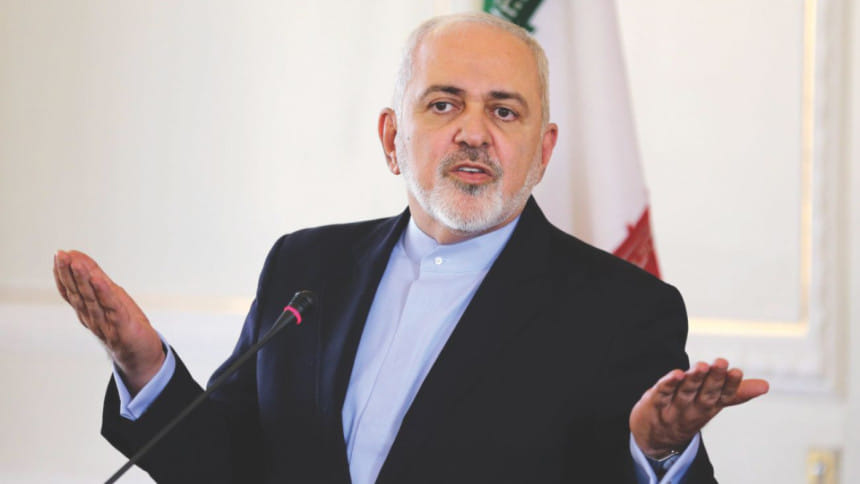Iran's policy poisoned by deadly infighting

Fighting between parties and factions in Iran is a "deadly poison" in formulating foreign policy, Foreign Minister Mohammad Javad Zarif said in an interview published by the Jomhuri Eslami newspaper yesterday, a day after announcing his resignation.
Zarif's comments suggest he may have resigned over pressure from hardline elements opposed to his role in negotiating a landmark 2015 nuclear deal with world powers.
"We first have to remove our foreign policy from the issue of party and factional fighting," Zarif said in the interview.
"The deadly poison for foreign policy is for foreign policy to become an issue of party and factional fighting," he added.
President Hassan Rouhani has not formally accepted the resignation which Zarif announced on Monday on Instagram.
Zarif offered an apology for his "shortcomings" in the unexpected message, with prominent members of parliament immediately calling for Rouhani not to accept the resignation.
Zarif, 59, has served as Rouhani's foreign minister since August 2013 and has been under constant pressure from hardliners who opposed his policy of detente with the West.
"I apologise for my inability to continue serving and for all the shortcomings during my term in office," Zarif said in the message posted on his verified Instagram account.
He urged Iranian diplomats not to follow his lead as rumours spread of mass resignations.
The prospect of Zarif's departure was swiftly welcomed by Iran's foes.
The 59-year-old's ready smile and mastery of both the English language and social media has made him a formidable player on the diplomatic stage.
"Zarif is gone. Good riddance," said Israeli Prime Minister Benjamin Netanyahu.

 For all latest news, follow The Daily Star's Google News channel.
For all latest news, follow The Daily Star's Google News channel. 



Comments